How A Once-Forgotten Queer Montreal Love Story Became One Of Canada's Top Podcasts
Clandestine love affairs, star-crossed destiny, and a life cut tragically short.
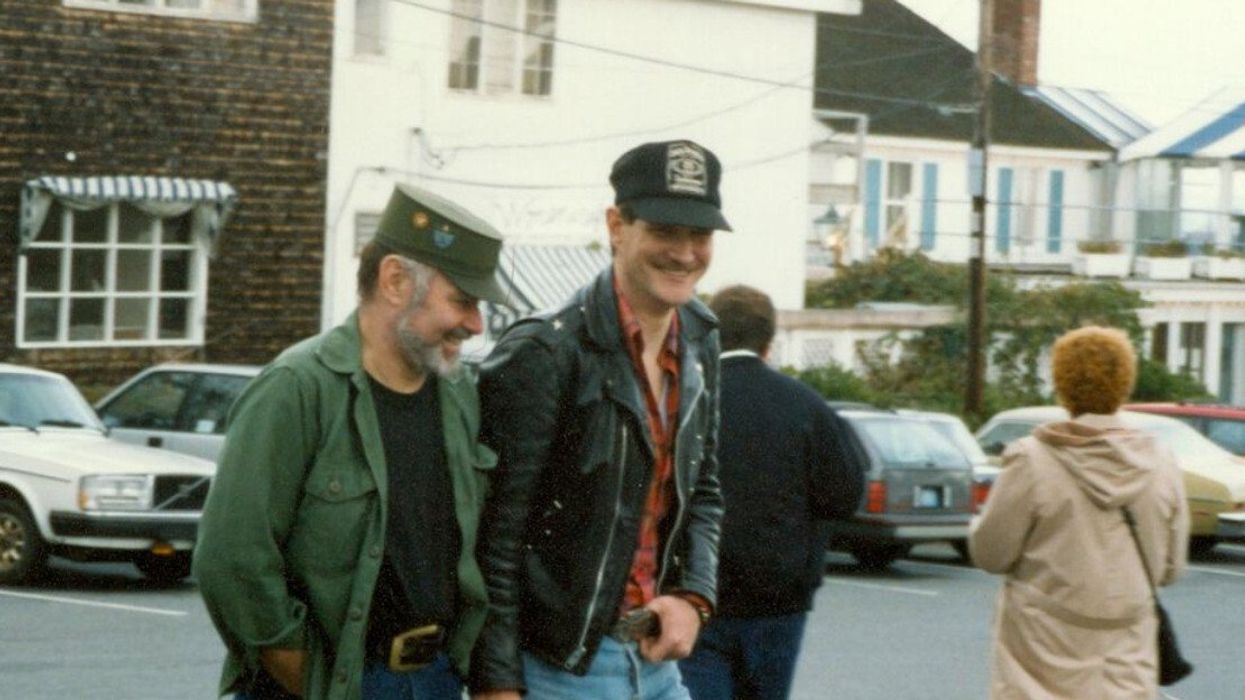
Daryl (L) and his partner Johnathan (R) pictured in 1988.
In the throes of the AIDS crisis in Canada, a bisexual playwright vanished into obscurity, his life cut cruelly short. Today, the untold story of Daryl Allen is clawing its way back to the spotlight.
Spearheaded by Dane Stewart, a Montreal playwright with an uncanny connection to Allen's life and struggle, this captivating narrative unfolds a tapestry of hidden histories, challenging identities, and the transformative power of art.
Their intertwined narratives have struck a chord with listeners across Canada, catapulting the Resurrection podcast to number two on Apple's Arts charts.
As he delves into Daryl's life, Stewart grapples with his own journey of queer identity, resilience, and artistic ambition. Whether you identify as queer or not, this extraordinary story of love, loss, and legacy demands your attention.
It's a testament to the power of remembrance, a plea for empathy, and a celebration of voices silenced too soon.
Dane Stewart sat down with MTL Blog over Zoom to discuss the show, his connections to Montreal, and what he most wants listeners to take away from the story he tells — one that ultimately belongs to someone else.
MTL Blog: Why was it important to you to tell this story in particular?
Dane Stewart: Well, I didn't know right away that I was going to tell this story. It took me probably about a year of digging into Daryl's life. I was given the script [for a play] that he wrote, Mustang 01, back in 2017, by his ex-partner, Dan. I read Mustang 01 and then I read a few of his letters.
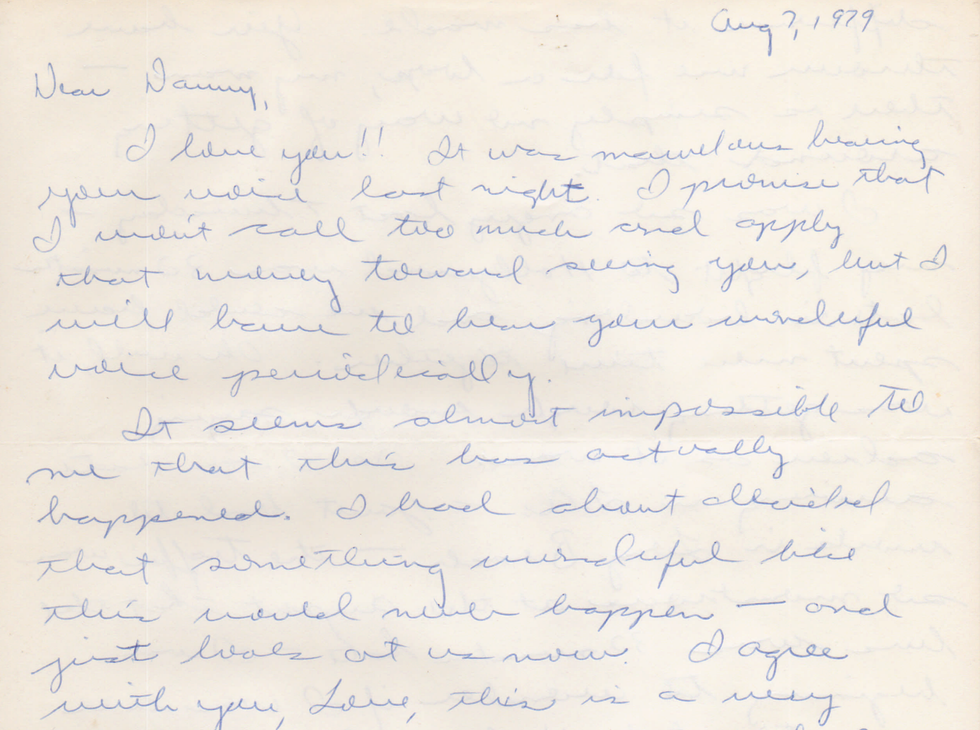
It was learning more about his life, the letters really bringing me into his everyday moments, and then the plays that brought me into his identity as a bisexual man, and the struggles that he experienced, growing up, you know, with same-sex attraction in the 60s, 70s [and] 80s. It was once those things started emerging, and they started to parallel my own life, that I felt drawn to the story.
I have always been a person who's been interested in queer history, [as] a queer oral history dork. So I'm aware of the lives that were lost to our community during the AIDS crisis. And so, part of me felt that it was my duty as a queer person living today to take the skills that I have and use those to honour Daryl.
How did you decide on podcasting as a medium to tell it?
Initially, I wanted to do this as a play, because Daryl was a playwright, I'm a playwright...
But it was during the pandemic that we were really getting deep into our creative process. And at that point, we weren't sure what was going to be happening to live performance, so we decided to start dabbling in audio as a medium. Once I started exploring podcasting, I really fell in love with the medium.
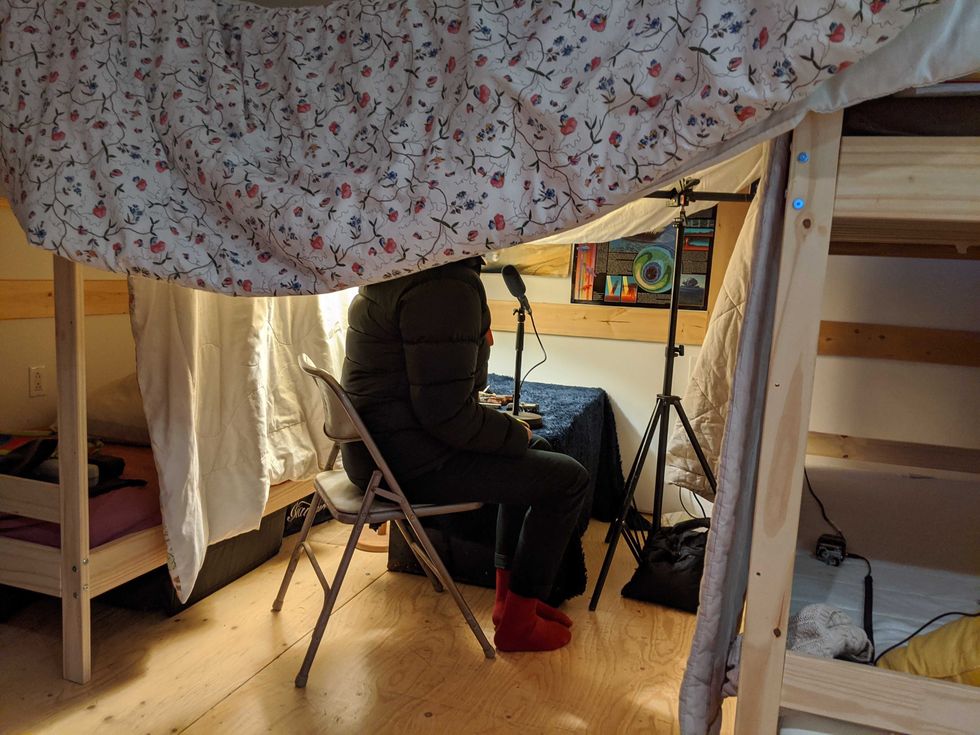
There are very few media where an audience member, a listener, will give you hours of their time uninterrupted for a single story. What other medium exists, where you can have that much of someone's time with a pretty limited amount of resources? Podcasting is really magical for that. It allows you to share these long-form, intimate stories with people.
How did exploring this story make you feel about your own experiences with homophobia, queerness and shame?
Shame is the theme that keeps coming to the foreground, in Daryl's story and in my own story.
When I realized I was gay, I was really afraid to come out. I didn't come out to my family until I moved away to Montreal for university. And even after I came out, I had this sort of internalized homophobia in me where like, I found it really difficult to connect with romantic partners on an intimate, emotional level.
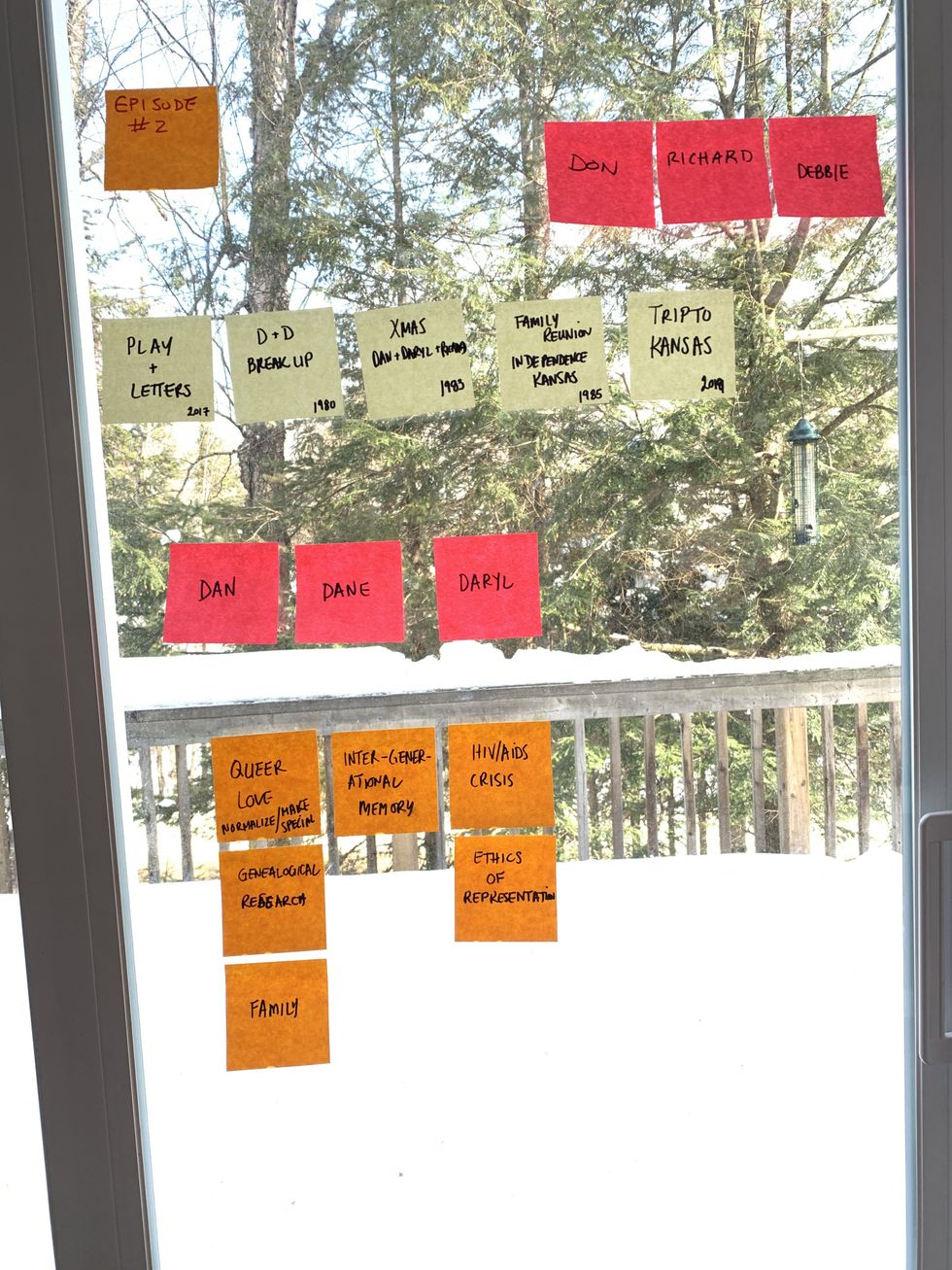
I think shame was at the root of that, you know? I wasn't really comfortable with myself and my own identity. So how could I be comfortable sharing that and connecting that with another person? And that's what I saw paralleled through Daryl's work, especially through his writing in Mustang 01.
In Daryl's life, he, through his artistic work, was able to work through that shame, and eventually get to a point where he was able to love with his full heart, with his whole being. He got to this point where he just didn't give a shit what people thought about him and his sexuality.
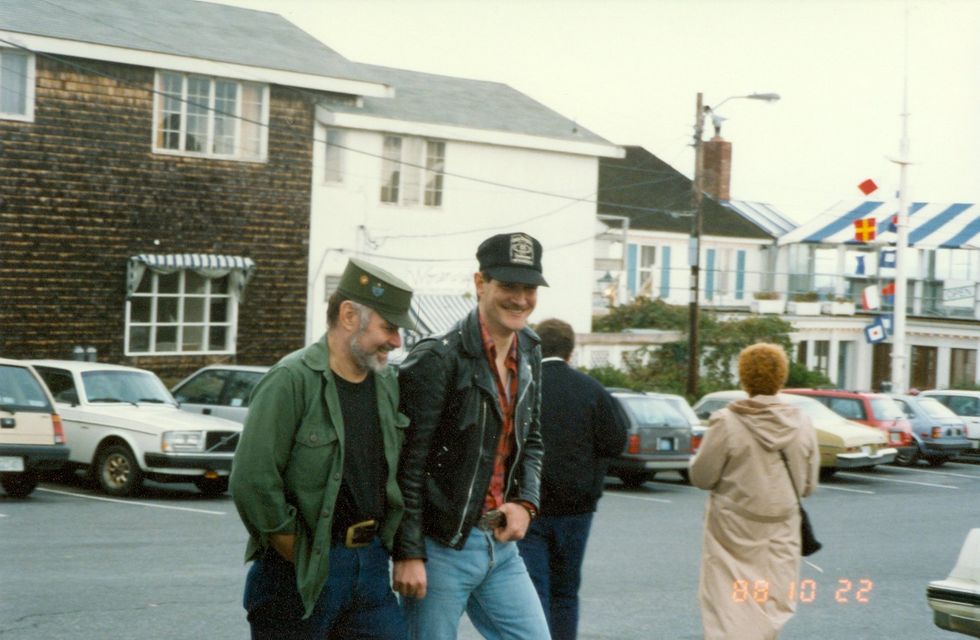
I tried to learn that lesson from him, and I kind of see it as this really wonderful, mutually beneficial symbiotic relationship Daryl and I have, where he taught me how to overcome that shame that I've felt my whole life.
What was the most surprising or touching thing that you learned about Daryl throughout this process?
His capacity for mentorship. So most of the partners who Darrell was with, during his life, were a bit younger than him. I mean, he and Dan [Wylie], who's referenced in the first episode, they were, like 19 years apart.
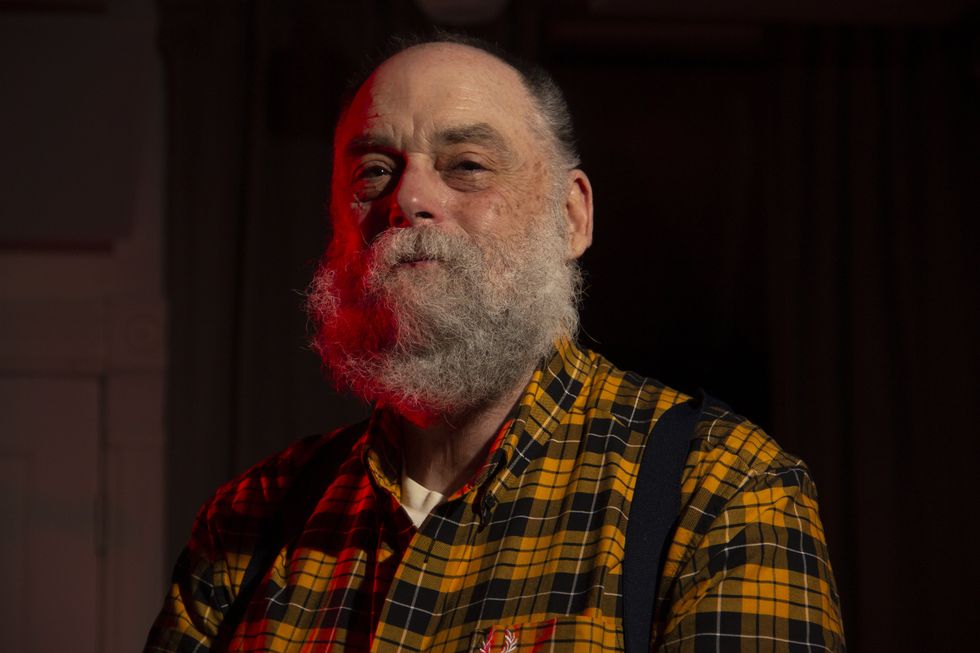
So he kind of took on this mentorship role, and that's something that I think is really valuable in the queer world.
This story started with an organic meeting between two queer men. Could you share your perspective on how queer lives and stories are shared through moments of community?
I love the stories of ordinariness that are passed down just through chats. And I think we as queer people, we maybe embrace that more than other communities out there in the world.
And historically, you know, through the 60s, 70s, 80s, even the 90s, before the internet connected queer people, and we needed to find each other in person in order to connect, I feel like queer bars, leather clubs, these sorts of actual physical spaces are so important for forging queer connection.
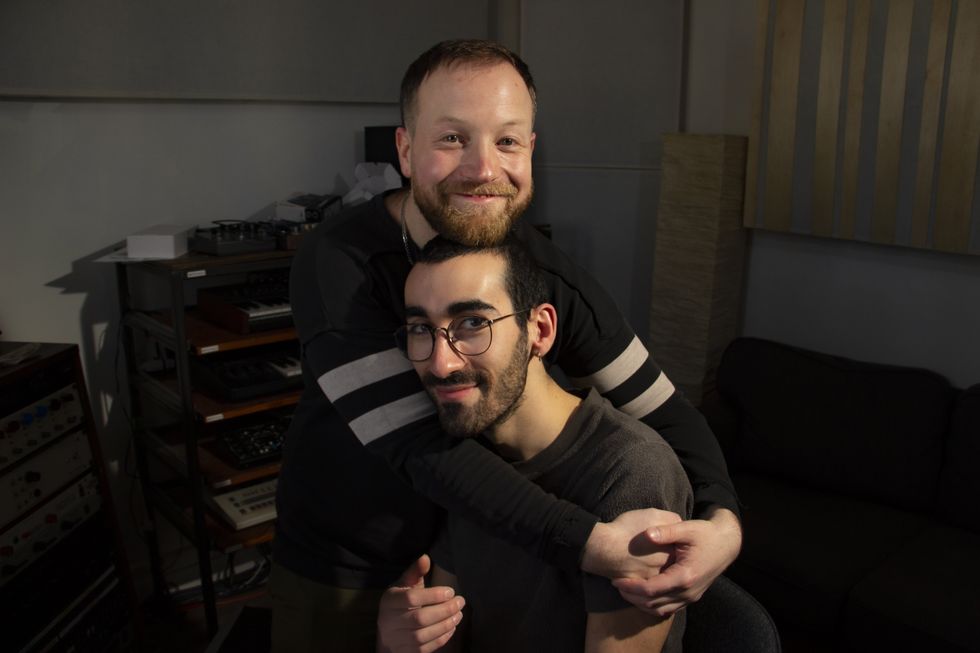
We're losing some of those places, but some really magical moments in my life come from getting out there in the queer world. You can just be who you are, without any worry. And I love that.
My next question is about the title. I wanted to know where "Resurrection" came from. How do you feel this public storytelling is bringing someone back? From where, to where? Tell me everything.
For me, the title is about bringing Daryl's life back for the public to learn about, and also bringing his art back to finish what he wanted to be done with his artistic work. He always wanted his work to be performed and produced professionally but never had that chance. We're resurrecting it to be able to do that.
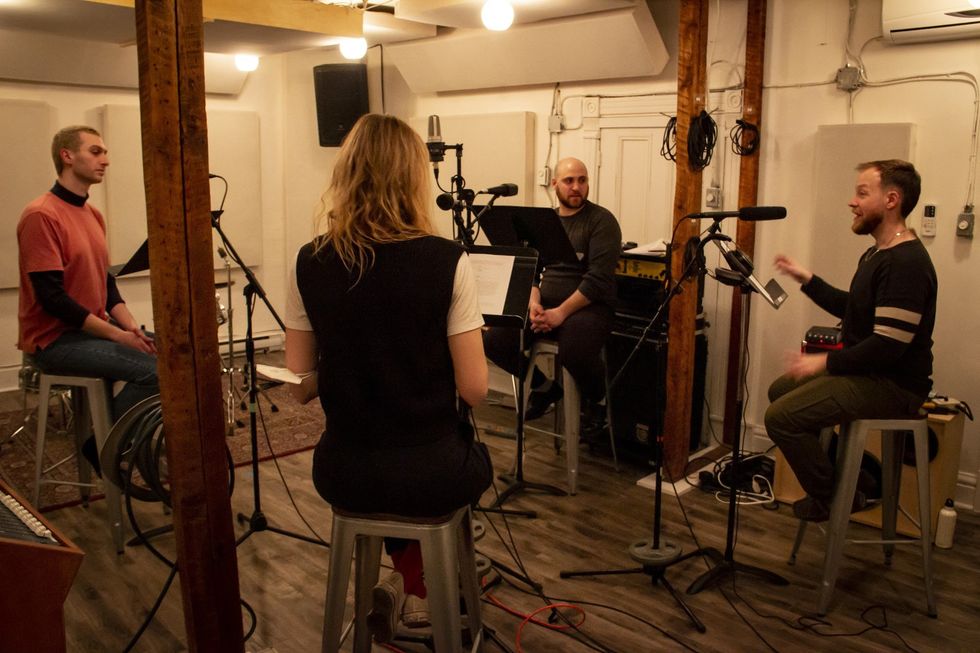
But we're also bringing him back: his entire life story. The podcast is eight episodes, so it's not just a little profile of him. It's an in-depth story of his entire life. For me, that's part of what the title Resurrection means. We're bringing all this back in all its messy complexity.
How has the research process influenced your feelings and your thoughts about queer history, and specifically how we talk about the AIDS crisis?
Working on this story about Daryl, I initially was motivated by the quiet part of queer history that dealt with the AIDS crisis. And by Daryl as being someone who contracted HIV, and then 10 years later, died from AIDS-related causes. And that's what we really see in the first two episodes.
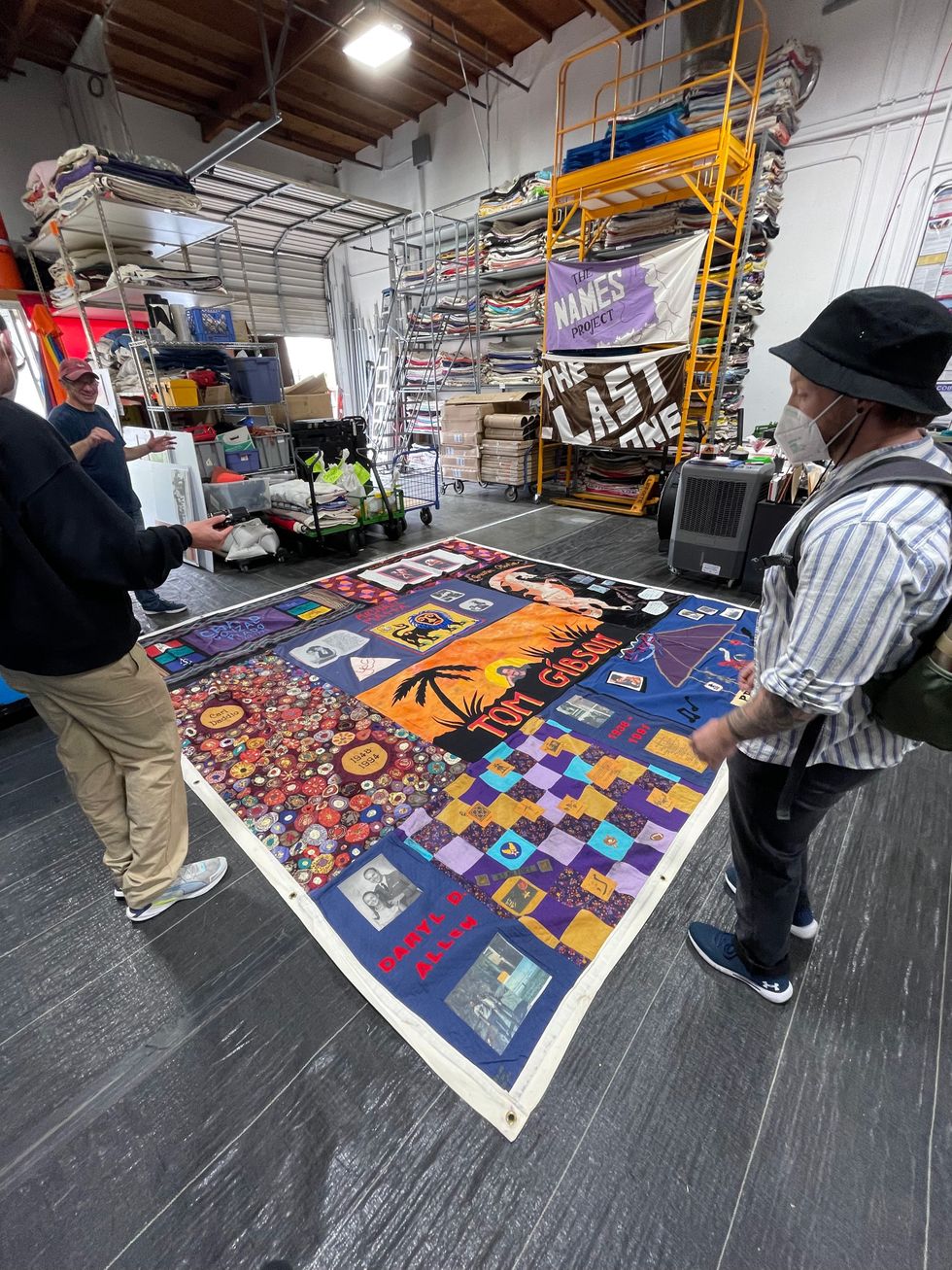
But as I got more into this story, I realized that like this the point of Resurrection, the point of this podcast cannot just be to tell the part of his story that's related to HIV.
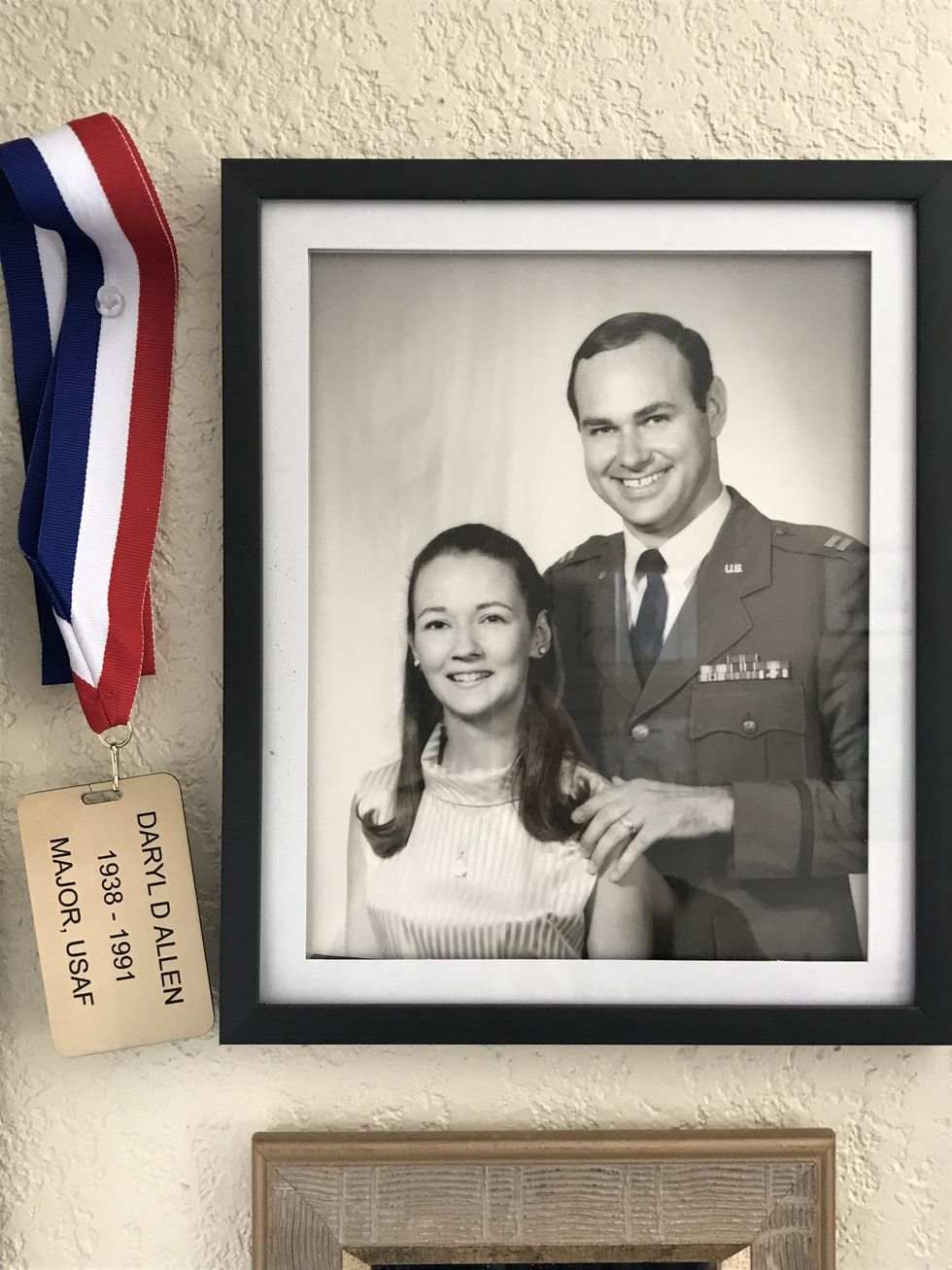
Beyond his experiences in the AIDS crisis, he was a playwright, he was a veteran of the US Air Force, had a complicated relationship with the US military system, was from a small town in Kansas and grew up on a farm; he has all of these different pieces of his identity.
I'm hoping that people will find the magic in learning all of those parts of him, his whole life story, and hopefully can apply that as a kind of exercise in empathy to stories that they're consuming about other queer people in the media these days.
Has this project changed how you think about Montreal as a city, as a location of queer life and community?
In speaking with Dan, I've learned so much about the history of queerness and queer spaces in Montreal.
We are privileged and lucky to have access to the spaces that we have and to be able to essentially choose, you know, "I'm going to turn this space into a queer space. I'm going to host a queer event here."
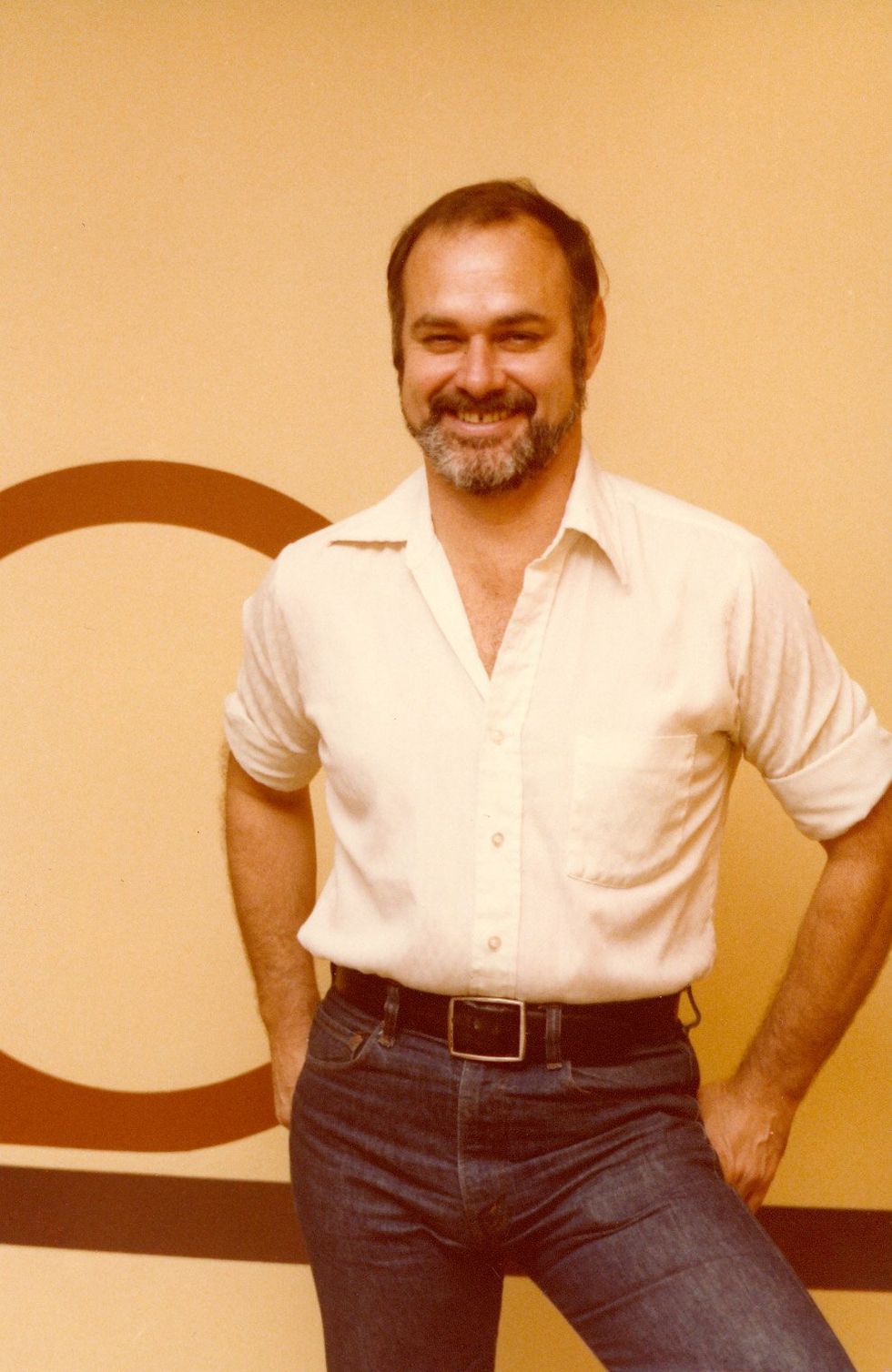
In speaking with Dan, I learned about his experiences in the "Old Village" in Montreal, when all the gay spaces were around like the Crescent Street area. He told me about his experience in the raid on Truxx in 1977, where the police raided the bar and arrested people at gunpoint, and this happened multiple times at multiple locations around Montreal [through the 1990s]. So remember that and celebrate it while you're out and enjoying your spaces in Montreal.
What would you like for listeners to keep in mind going into this project?
For anyone going into this project, I would want them to stay curious. And also don't get complacent, make sure that we are aware of what's going on around us and the changing landscape of rights for 2SLGBTQ+ people.
[The podcast] hops around: you'll listen to the first two episodes and you think it's about one thing, and then we go in a very different direction. So stay curious, and I think you'll have a lot of fun with the story.
Resurrection Podcast
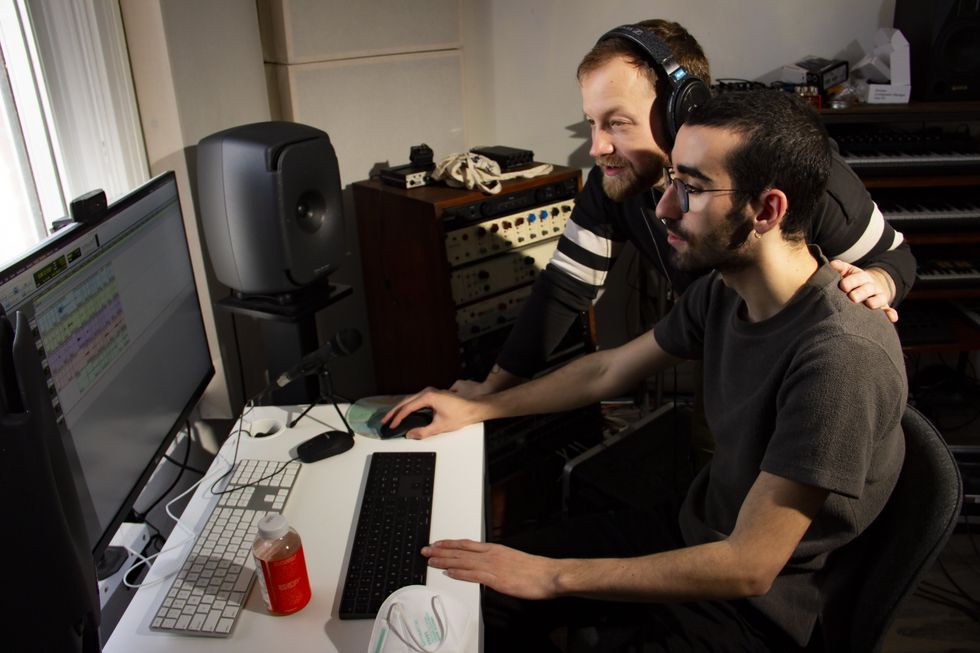
Dane Stewart (L) and Matthew Rogers (R) in the editing studio.
Courtesy of Dane Stewart
Listen to Resurrection anywhere you get your podcasts, or by following this link.
- Podcast Icon Sarah Marshall Talks Performance & Healing Ahead Of Her Montreal Show ›
- Flirty, Queer-Friendly Adult Mingling Events Are Coming To Montreal's Plateau ›
- Montreal Has A Hot Girl Social Club & Being A Bad B*tch Never Felt So Good - MTL Blog ›
- A Montreal Mom's Request For A 'Kid-Friendly' Pride Event Started A Fiery Facebook Debate - MTL Blog ›
- Beyond The 'McGill Ghetto:' An Oral History Of Community Organizing In Milton-Parc - MTL Blog ›
- 5 Montreal sex clubs you may want to visit for a spicy adult experience - MTL Blog ›
